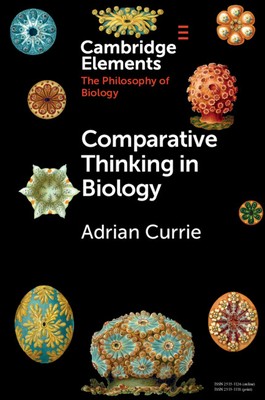
- We will send in 10–14 business days.
- Author: Adrian Currie
- Publisher: Cambridge University Press
- ISBN-10: 1108727492
- ISBN-13: 9781108727495
- Format: 15.2 x 22.9 x 0.4 cm, softcover
- Language: English
- SAVE -10% with code: EXTRA
Reviews
Description
Biologists often study living systems in light of their having evolved, of their being the products of various processes of heredity, adaptation, ancestry, and so on. In their investigations, then, biologists think comparatively: they situate lineages into models of those evolutionary processes, comparing their targets with ancestral relatives and with analogous evolutionary outcomes. This element characterizes this mode of investigation - 'comparative thinking' - and puts it to work in understanding why biological science takes the shape it does. Importantly, comparative thinking is local: what we can do with knowledge of a lineage is limited by the evolutionary processes into which it fits. In light of this analysis, the Element examines the experimental study of animal cognition, and macroevolutionary investigation of the 'shape of life', demonstrating the importance of comparative thinking in understanding both the power and limitations of biological knowledge.
EXTRA 10 % discount with code: EXTRA
The promotion ends in 19d.18:06:37
The discount code is valid when purchasing from 10 €. Discounts do not stack.
- Author: Adrian Currie
- Publisher: Cambridge University Press
- ISBN-10: 1108727492
- ISBN-13: 9781108727495
- Format: 15.2 x 22.9 x 0.4 cm, softcover
- Language: English English
Biologists often study living systems in light of their having evolved, of their being the products of various processes of heredity, adaptation, ancestry, and so on. In their investigations, then, biologists think comparatively: they situate lineages into models of those evolutionary processes, comparing their targets with ancestral relatives and with analogous evolutionary outcomes. This element characterizes this mode of investigation - 'comparative thinking' - and puts it to work in understanding why biological science takes the shape it does. Importantly, comparative thinking is local: what we can do with knowledge of a lineage is limited by the evolutionary processes into which it fits. In light of this analysis, the Element examines the experimental study of animal cognition, and macroevolutionary investigation of the 'shape of life', demonstrating the importance of comparative thinking in understanding both the power and limitations of biological knowledge.


Reviews